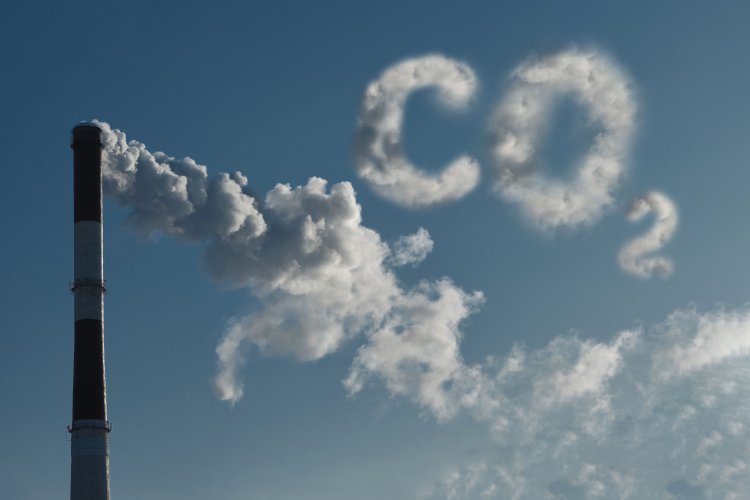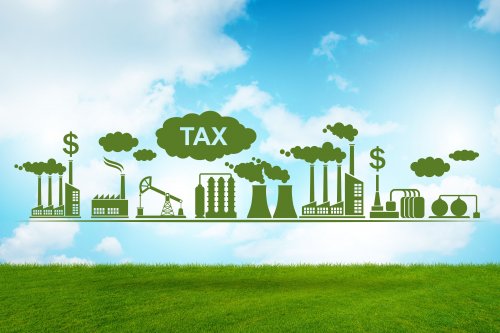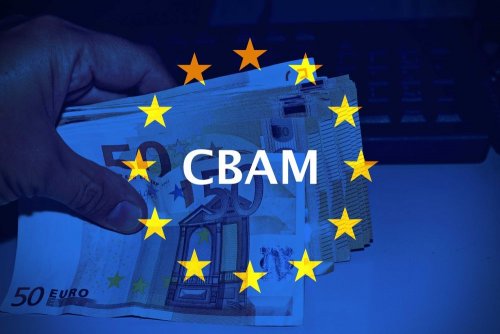Representatives of the Ecology and Green Economy Committee of the Federation of Employers of Ukraine, together with government and business representatives, discussed the Strategy for Implementation of the Greenhouse Gas Emissions Trading System in Ukraine until 2033 and proposed 6 points to the Ministry of Environmental Protection and Natural Resources of Ukraine that should be taken into account when implementing it.
The FEU published the letter to the Ministry of Environment on its website.
The Federation's experts noted that they support the idea of implementing an effective climate policy and outlined their list of proposals for this process:
1. To accelerate the creation of an information base in Ukraine with indicators (coefficients) of CO2 emissions per 1 kW of consumed power. By 2025, develop a concept for creating a CBAM for imports of goods to Ukraine.
2. To extend the terms of the ETS implementation in Ukraine, and thus the Strategy, namely: the preparatory stage in 2024-2025, the pilot implementation of the ETS in 2026-2031, to start the full-fledged functioning of the ETS in Ukraine in 2032-2038, while adapting greenhouse gas emission prices in Ukraine to the level similar to the EU, and to complete the integration of the ETS of Ukraine into the EU ETS in 2038.
FEU environmentalists recommended a softer emissions pricing policy and a gradual increase in the cost of a ton of CO2. They also drew attention to the fact that the EU is changing its climate instruments and without the implementation of the EUAM in Ukraine, it will be impossible to fully launch the ETS in 2026.
3. Add the following item to the operational plan: "Creating conditions for increasing the number of verification bodies in Ukraine". The FEU noted that since the Strategy provides for education and training on the functioning of the ETS for representatives of the authorities, supervisors or plant operators, this will actually lead to the emergence of a new market. According to their preliminary estimates, only 6 sectors subject to the CBA are represented by more than 2700 companies in Ukraine, and the ETS will cover a larger number of Ukrainian companies.
4. Prevent double payment for CO2 emissions. To do this, experts asked to pay attention to the existing legal framework, as well as to create fair conditions for Ukrainian producers who export their products to countries with lower CO2 taxes. As one of the mechanisms, the FEU suggested reimbursement of the cost of greenhouse gas emissions for the relevant exports.
5. Determine an approach to the temporary free allocation of quotas for electricity generating facilities in order to modernize, diversify and sustainably transform the energy sector.
6. Introduce reliable tools for monitoring, reporting, and verification of greenhouse gases in 2024-2026. This includes training and the search for financial instruments (attracting donors, grants, etc.).
The Federation's environmentalists also pointed out that in the European Union, nuclear power and partially gas-fired power generation have received a "green label." They proposed to include this issue in the negotiations on Ukraine's membership in the EU, if the same generation in Ukraine does not yet have a similar status.
In June, EcoPolitic reported that the National Securities and Stock Market Commission had reviewed the draft order of the Cabinet of Ministers of Ukraine "On Approval of the Strategy for Implementation of the Greenhouse Gas Emissions Trading System in Ukraine for the Period up to 2033" and did not support it.
In February, we told you that experts believe that the rapid launch of the Emissions Trading System could harm its efficiency and economy.
In January, the Ministry of Environment developed new emissions monitoring standards that are necessary for the launch of the ETS.





